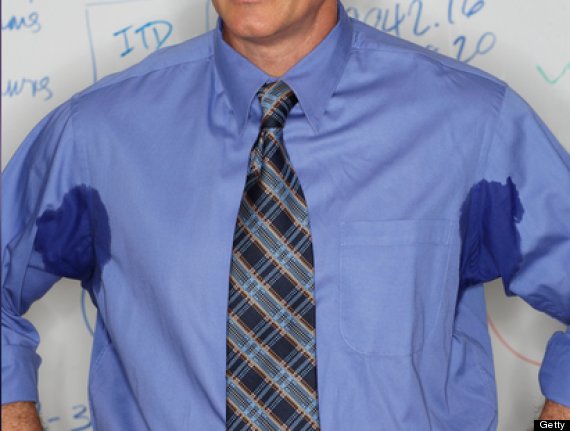Excessive sweating can affect hands, feet and armpits. In rare cases, it can affect the face. Heavy sweating (also known as hyperhidrosis) is a very real and embarrassing problem, but there are some effective ways to treat it. Before you hide under bulky sweaters or move to a chillier climate, you can try these proven techniques for combating excessive sweating.
Cures for Excessive Sweating
1. Iontophoresis
Iontophoresis is the passage of an electrical current onto the skin. Iontophoresis has a variety of uses in medicine. Iontophoresis is a medically proven method of removing unwanted and excessive sweating.
In order to apply it, a special device such as Electro Antiperspirant, is required. Using the device, special electrodes, and containers with ordinary water (everything included), a very weak electrical current (approximately thousandths of an amp) is conducted to affected areas of the body. Together with water particles, iontophoresis affects sweat glands and is capable of completely stopping sweating. With Electro Antiperspirant, the effects of the treatment often persist for several months on a single application! Electro Antiperspirant is not only applicable to the palms and feet, but also to the armpits, head, abdomen, and back.
Learn more about Iontophoresis Technology here....
2. Oral Medicine
Visiting with your doctor about the problem is the first step to stopping the sweating. Usually, one of the medications prescribed will cause the excessive sweating to decrease. Ditropan, Robinol and Probanthine are three different options available for your doctor to prescribe. There are side effects, as with any medicine, but they are minor symptoms.
3. Antiperspirants and Deodorant
There is a new product on the market for excessive armpit sweating. Maxim
4. Lotion
For sweaty hands, there is an antiperspirant lotion available. Drysol
5. Botox
Botox is an injection that blocks the chemical that causes sweating. This is done mostly in isoloated cases of armpit sweating. The injection of Botox is given in the armpit area, and it can help the patient for periods ranging from 3 to 6 months after the procedure.
6. Surgery
You may have seen plastic surgeons advertising surgical procedures for excessive sweating. Surgery is only recommended for people with severe hyperhidrosis that hasn't responded to other treatments. During surgery, the doctor may cut, scrape, or suction out the sweat glands.
Another surgical option is endoscopic thoracic sympathectomy (ETS), in which the surgeon makes very small incisions and cuts the nerves in your armpit that normally activate the sweat glands. This procedure is very effective, but it's used only as a last resort on people who have tried every other treatment. ETS can't be reversed, and it can leave scars. One side effect almost everyone who gets ETS has to deal with is compensatory sweating, which is when your body stops sweating in one area, but starts sweating in another (such as the face or chest) to compensate.


